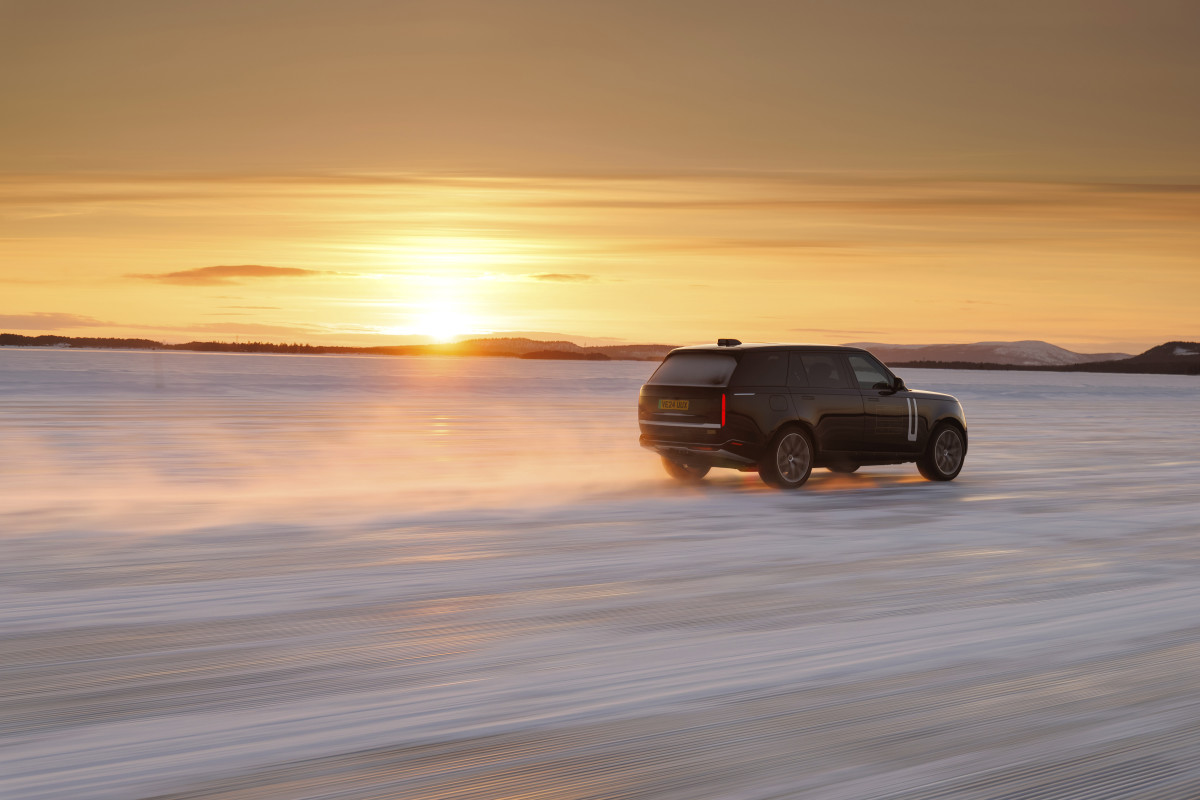The classic British luxury SUV is going electric
With intriguing full-size, fully-electric SUVs entering the market, such as the Mercedes-Benz G580 with EQ Technology and the Cadillac Escalade IQ, Land Rover will have some serious competition on their hands when they finally debut their all-electric Range Rover, so it seems wise that they’ve taken their time to make sure everything’s up to snuff. Only time will tell if this strategy will pay off for the Range Rover, or if they’ll be too late to the EV party.

Land Rover
Range Rover’s innovative battery technology will ensure optimized capability in any climate
Regardless of timing, Range Rover’s Arctic testing has been conducted to ensure that its battery tech can handle even some of the most harshly cold challenges this planet has to offer. Cold weather environments have always been a sort of grey area for electric vehicles, as the stigma surrounding the inevitable and significant loss of range in low temperatures has been known to scare off many would-be electric vehicle buyers who lack confidence in EVs during winter conditions.
Range Rover aims to eliminate that worry in its potential future buyers through various innovative technologies. One such technology, named ThermAssistTM, uses an advanced on-board thermal management system to reduce heating energy consumption by up to 40%. Not only does this technology aim to maintain optimized range in extremely cold temperatures, it also mitigates the impact on charging performance and keeps the cabin warm and cozy, even if the weather outside says otherwise.

Land Rover
The Range Rover Electric is shaping up to be a fierce competitor in its class
According to JLR, the Range Rover Electric will employ a 117kWh battery, “consisting of 344 prismatic cells in a double-stacked layout.” While the battery’s power output and estimated range are still unknown factors, it’s clear that Range Rover has tailored its aim directly at the Mercedes-Benz G580 with EQ Technology, which employs a 116kWh battery to produce an astonishing 579 horsepower and 859 lb-ft of torque, with an EPA-rated range of 239 miles. The Cadillac Escalade IQ, however, seems to offer even stiffer on-paper competition, using a 205kWh battery to offer 750 horsepower, 785 lb-ft of torque, and 465 miles of range–nearly double the G580’s, despite a base MSRP that’s over $30,000 less than that of the Mercedes. It’ll be interesting to see where the Range Rover ends up in contrast to these two models, but we expect its pricing and specs to land somewhere between the two.

Land Rover
Despite its battery power, the Range Rover Electric will remain true to the model’s storied heritage
Range Rover didn’t just take to the Arctic Circle to test how well its batteries can cope with the harsh conditions. After all, even with battery power, a Range Rover must always be a Range Rover, and how well it tackles tough terrain has always been one of its most esteemed traits. With instantaneous and fine-tuned power delivery, the Range Rover Electric sends power to all four wheels and uses an Intelligent Driveline Dynamics (IDD) system to distribute rear torque from 100% to 0% to prevent loss of traction.” Integrated Traction Management maintains stability, “controlling motor speed within 50 milliseconds and managing slip up to 100 times quicker than an ICE vehicle equivalent.”
Final thoughts
We have high hopes for the capabilities of the upcoming Range Rover Electric based on what we’ve heard from the brand, but we’ll just have to wait to get behind the wheel to see if it can outmatch the distinguished charm of the traditional, V8-powered Range Rover that the world has come to adore over its many years of life.